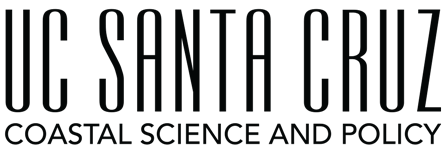Congratulations to two CSP graduates from the class of 2024 who have been selected for the prestigious John A. Knauss Marine Policy Fellowship Program for 2025, sponsored by the National Sea Grant College Program.
Angelo San Pablo, whose CSP capstone project,‘Sea’ing Further’: Closing Knowledge Gaps & Improving Sustainability along the Aquaculture Feed Supply Chain, improved one of the largest global aquafeed manufacturers SeaFurther Sustainability program to mitigate the impacts of climate change. He created a baseline carbon footprint and a reduction roadmap to reduce their emissions, identified additional environmental impact categories that should be considered to mitigate climate change when looking at the life cycle of aquafeeds, and helped close knowledge gaps along the aquafeed supply chain.
Cindy Matuch, whose CSP capstone project, Bridging the Gap Between Science and Policy for Effective Plastic Pollution Reduction, supported policy efforts on the state, federal, and international policy interface to reduce plastic pollution in our oceans– primarily with the United Nations INC meetings on plastic pollution for the Global Plastic Treaty. Her methods include creating a science-policy interface developed across expert groups to ensure that the best available science, traditional knowledge, knowledge of indigenous peoples, and local knowledge systems inform the Global Plastic Treaty objectives and provisions.
Angelo will be placed in a host office in the executive branch; and Cindy will be placed in a host office in the legislative branch of the U.S. government that work on coastal and marine science policy for a one-year paid fellowship. They will receive their assignments in the fall and will begin their fellowship in early 2025.
The finalists were chosen after a highly competitive selection process that included several rounds of review at the state and national Sea Grant levels. The fellowship honors John A. Knauss, a National Sea Grant program founder and NOAA administrator. It provides a unique professional development opportunity for talented graduate students who have an interest in national policy decisions affecting ocean, coastal and Great Lakes resources.
The 2025 class of fellows will be split into two cohorts, legislative and executive. Legislative fellows work in the U.S. House of Representatives and U.S. Senate, both in personal and committee offices. Executive fellows are placed in federal agencies with marine policy-relevant missions and have previously served on the Committee on the Marine Transportation System, Department of Energy, Department of Interior, Department of Transportation, Environmental Protection Agency, Marine Mammal Commission, NOAA, National Science Foundation, Oceanographer of the Navy, State Department, Smithsonian Institute, U.S. Army Corps of Engineers, U.S. Coast Guard and the White House.
See the National Sea Grant News story here.
 Angelo San Pablo
Angelo San Pablo
 Cindy Matuch
Cindy Matuch
